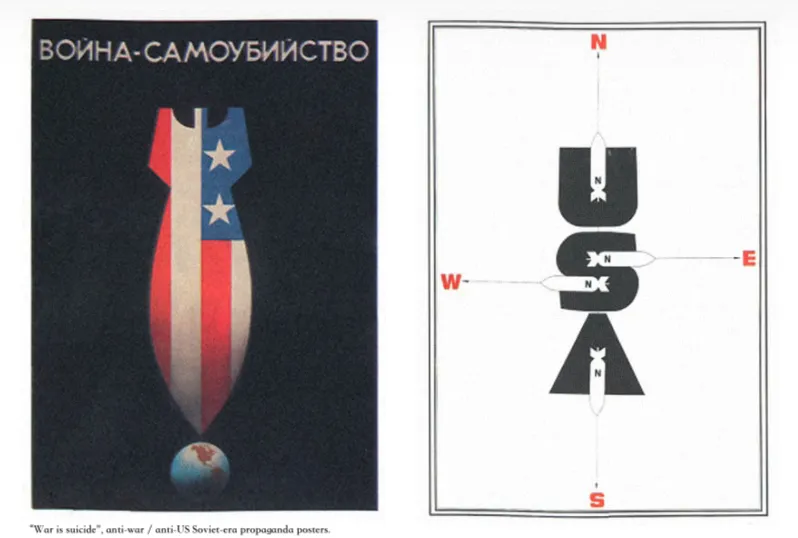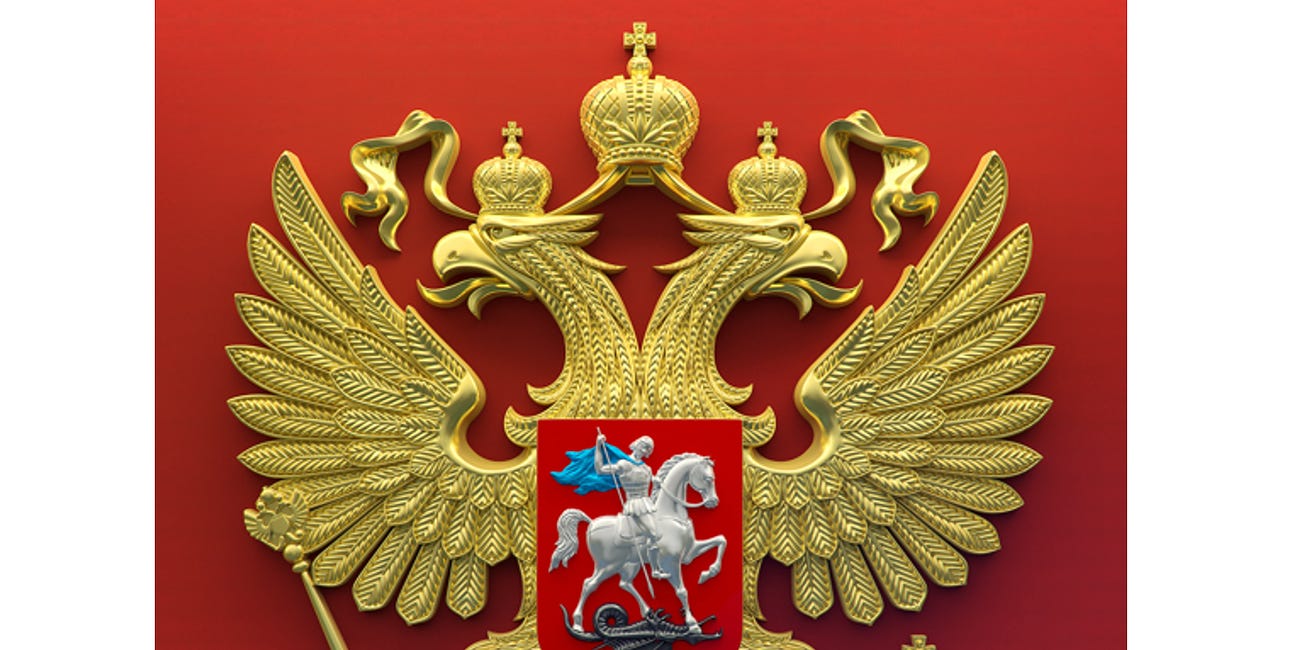
Anti-Americanism in Russia as Seen by Feng Yujun
"[Anti-Americanism] has had a significant impact on the Russian psyche, awakening both xenophobic and isolationist sentiments ... Russia's current situation is reminiscent of post-World War I Germany"
Anti-Americanism in Russia as Seen by Feng Yujun
"[Anti-Americanism] has had a significant impact on the Russian psyche, awakening both xenophobic and isolationist sentiments ... Russia's current situation is reminiscent of post-World War I Germany"
THOMAS DES GARETS GEDDES
SEP 21, 2023

China’s top diplomat Wang Yi (王毅) was in Moscow on Monday where he met Russia’s Foreign Minister Sergei Lavrov. In a Telegram statement following this meeting, Russia's foreign ministry mentioned that "the closeness of the positions of the parties regarding U.S. actions in the international arena, including those of an anti-Russian and anti-Chinese nature, was noted."
Today’s piece is, rather fittingly, focused on Russian anti-Americanism as viewed by one of China’s top Russia analysts, Feng Yujun (冯玉军).
Feng is a scholar worth following among China’s establishment intellectuals. He is now a senior figure within Fudan University’s international relations department, having spent over two decades at CICIR (a key think tank linked to China’s Ministry of State Security) where he worked alongside the likes of Yuan Peng (now CICIR’s president) and Yan Xuetong (one of China’s most famous international relations scholars). I should also point out that, much like Chinese think-tank analysts, most IR academics who work at China’s top universities are connected, more or less closely, with China’s policymaking circles and are involved in the writing of internal reports (内参) for them.
Feng is an interesting figure for he has also been one of the most outspoken critics of Russia since the beginning of the war in Ukraine and I know that he has been subjected to various pressures as a result of this. His views on Russia are on the fringe of the types of arguments commonly held openly by Chinese international relations experts. Not least because some of the criticism that he directs against Moscow’s policies could easily be construed as criticism against similar policies implemented by Beijing. This is again quite obvious in today’s piece.
Other than his outspokenness, what probably distinguishes Feng from at least some of his colleagues when it comes to Russia is what I understand to be a belief that raw geopolitical interests should not automatically trump values in international relations. For a broader overview of how Chinese analysts have been assessing their country’s ties with Russia, see here:
That being said, this does not mean that Feng’s views are not shared by others within these circles. He is simply more willing than most to express them publicly. Indeed, dissatisfaction with the Kremlin’s erratic behaviour and its war in Ukraine is widespread among China’s intellectual elite – though few would recommend abandoning Beijing’s current policy towards Moscow. Both aspects were made all the more evident to me during my conversations with scholars from across China’s political spectrum over the summer.
Enough of this longwinded introduction. If you enjoy reading this newsletter, please do think of sharing and citing it as widely and often as possible. Sinification’s one year anniversary is fast approaching and if it is to survive beyond this fateful date, it needs more exposure and some form of funding.
The following is a summary of Feng’s views on anti-Americanism in Russia:
Summary
- Historically, anti-US sentiment in Russia has come to the fore every time Moscow has decided to shift its policy from one of economic reform and modernisation to one more focused on maintaining domestic stability. This remains true today.
- Deep down, Russia knows that it is predominantly a European/Western nation that has long sought to be accepted by the West. This is what makes anti-Western sentiment in Russia so conflicted.
- Nevertheless, post-imperial Russia has often constructed its identity in contrast with a “morally corrupt” America, seeking to attribute to this American “Other” some of those traits that it is often guilty of possessing itself: an aggressive and expansionist foreign policy that, if it could, would seek to dominate the world.
- Jealousy, an inability to emulate American successes and a deep-seated “inferiority complex” vis-à-vis the West have all contributed to Russia’s hostility towards the US.
- Furthermore, just as anti-US sentiment can be linked to anti-Semitism in Europe, so can it be in Russia.
- Russian anti-Americanism is also a political tool that aims to foster national unity, bolster the Kremlin’s domestic legitimacy and build a global “anti-US camp” so as to weaken America’s global hegemony.
- But playing this anti-America card is a double-edged sword that may well end up both hollowing out Russia’s national identity and jeopardising the country’s long-term economic prospects and social progress.
- Moreover, anti-Americanism has encouraged the emergence of xenophobic, pro-fascist and militaristic views in Russia.
- The resurgence of Russian anti-Americanism has gone hand in hand with the rise of Moscow’s “expansionist hawks” and has been one of the driver’s of the Kremlin’s increasingly aggressive behaviour abroad since the late 2000s.
- Today’s Russia is reminiscent of post-World War I Germany: a deeply humiliated and resentful former empire (or something akin to one) with an “insatiable desire” to restore its former glory.


